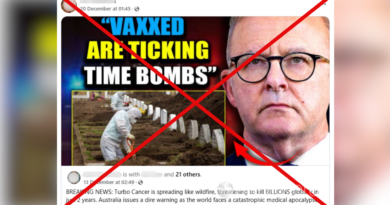Should a coronavirus vaccine be mandatory? In Brazil’s most populous state, it will be.
By Terrence McCoy,
Nelson Almeida AFP/Getty Images
RIO DE JANEIRO — The words couldn’t have been any clearer. In the most populous state in Brazil, anchored by the largest city in the Americas, getting vaccinated against the coronavirus won’t be a question of personal volition. It will be mandatory.
“I’ve guaranteed that the 45 million Brazilians here in São Paulo will be vaccinated, and the vaccine will be obligatory,” Gov. João Doria told reporters in a slow, deliberate cadence. “We will take legal measures if there are any setbacks in this regard.”
As countries race to approve the first round of coronavirus vaccines — including Britain on Wednesday authorizing the Pfizer vaccine — governments, businesses and civil institutions are grappling with an increasingly urgent question: Should it be required?
That debate is playing out loudly in Brazil, where Doria, whose state has been devastated by the disease, and President Jair Bolsonaro, a coronavirus skeptic, are locked in a bitter political dispute over whether Brazilians should be required to take a vaccine.
For much of the world, the vaccine can’t arrive soon enough.
Jonne Roriz
Bloomberg
Doctors and nurses work to resuscitate a patient Friday in the covid-19 intensive care unit at the Emilio Ribas Institute hospital in São Paulo.
As case and death numbers soar to alarming new heights, the containment policies that once helped quell outbreaks appear increasingly untenable. People by the millions — numbed to the dangers, exhausted by the restrictions, unable to absorb more economic pain — are flouting what health guidelines remain. Hospitals are being pushed to the brink. The vaccine appears to be the only way out.
[Brazil, ravaged by the coronavirus, becomes key testing ground for vaccine]
But the prospect of forcing people to take it has proved to be a delicate matter, pitting individual rights against collective need, personal inclination against social responsibility. Some public health officials argue that mandatory vaccination is the only way to vanquish the coronavirus and — compared with lockdowns and travel restrictions — far less burdensome.
Other experts — and the majority of government leaders — say the opposite: The vaccine can’t be mandatory. People need to make their own decisions.
“There are important fundamental values at stake,” said Alberto Giubilini, a public health ethicist at the University of Oxford. “We live in liberal societies where what I do with my body and my health is my own business, and the state shouldn’t interfere. But we also live in collective communities, and we have duties to those communities. And these are core values that often clash.”
The reckoning is soon coming for Brazil.
Doria said Thursday he plans to begin vaccinating people in the state as soon as January. The hope is to finish by the end of February.
Bolsonaro’s pushback
Bolsonaro, a far-right populist, has done stunningly little to curb an outbreak that has sickened more than 6.5 million people in Brazil, killed more than 175,000 and swelled into the worst humanitarian disaster in national history. He has said the government shouldn’t institute lockdowns or close businesses. He has urged people to just get on with their lives and take their lumps.
“Everything is about the pandemic, and we need to stop with this thing,” he said at a news conference last month. “We’re all going to die. Everyone here is going to die. . . . We have to stop being a country of sissies.”
Kiko Sierich
Getty Images
Brazilian President Jair Bolsonaro visits the construction site of a bridge linking Brazil and Paraguay last week in Foz do Iguacu, Brazil.
Bolsonaro, who was infected with the coronavirus himself, has taken a similarly laissez-faire approach to vaccines. He has declared he will not take one: “It’s my right.”
But he has reserved particular disdain for what he calls “the Chinese vaccine of João Doria,” a candidate developed by the Chinese biotech firm Sinovac. When trials in Brazil were halted briefly last month after a volunteer reportedly committed suicide, Bolsonaro declared victory.
[The coronavirus has come roaring back into Brazil, shattering illusions it wouldn’t]
“This is the vaccine that Doria wants to make everyone in São Paulo take,” he wrote on Facebook. “The president said the vaccine will never be obligatory. One more win for Jair Bolsonaro.”
Bolsonaro’s new aversion to a vaccine mandate is at odds not only with prevailing Brazilian culture but with legislation he signed in February. Written as the coronavirus was beginning its global rampage, the law allows for mandatory vaccination.
In Brazil, there was little unusual about it: A battery of vaccines has long been obligatory for children. The requirements are rarely enforced because people here have historically been receptive.
To jurists, the law effectively ended the legal debate. Brazil’s attorney general, Augusto Aras, said the states have the right to make it obligatory. Now legislators in Rio de Janeiro state are discussing whether it should be.
“If you read the 2020 law, it’s clear,” said Bruno Santos Cunha, a municipal attorney in the northeast city of Recife, where he specializes in civil liberties law. “State governments, and even city governments, they have the power to introduce mandatory vaccinations. It was adopted during the covid crisis, and Bolsonaro signed it.”
[‘There are no words’: As coronavirus kills Indigenous elders, endangered languages face extinction]
Less clear, however, is whether and how such a law would be enforced — and what the political and social cost would be in doing so. Under Brazilian law, “medical health infractions” are technically punishable by up to one year in jail. But it’s neither certain whether vaccine abstention would qualify nor who would decide.
Doria declined to be interviewed or respond to written questions.
“The approval of a vaccine — or vaccines — is the only guarantee of effective protection against the coronavirus,” he said in a statement. “It is the right of all Brazilians.”
‘Path for conspiracy theories’
But is it also their obligation?
Public health experts say the debate risks polarizing public sentiment at a time when misinformation and mistrust are already corroding faith in vaccines. Surveys last year found 97 percent of Brazilians believed in the importance of vaccinating children. But now, only 72 percent of people in the cities of Rio and São Paulo say they intend to get the coronavirus vaccine.
People most mistrust the Chinese vaccine, which Bolsonaro supporters have attacked with racist and xenophobic language.
“When science gets politicized, it always opens the path for conspiracy theories, that you are being wronged and others are trying to fool you,” said the microbiologist Natália Pasternak Taschner, a prominent scientist in Brazil. “And no one wants to be wronged and fooled, so it opens the door for mistrust.”
[Brazilians volunteer for vaccine trials to counter growing skepticism]
A polarizing debate over mandatory vaccination, she said, will only create more confusion and cause both sides to become entrenched. “It gives the impression that we are going to get vaccinated by force,” she said. “But no one is going to chase you with a needle.”
Andre Penner
AP
A container carrying the experimental coronavirus vaccine is unloaded from a cargo plane that arrived from China at Guarulhos International Airport in Guarulhos near São Paulo on Nov. 19.
The time Brazil tried that, it turned out badly. In 1904, Rio was in the grip of several public health crises. Many people were crowded into fetid tenements. There was little trash collection. Smallpox was everywhere. As part of a public health campaign, sanitary workers were empowered to enter people’s homes accompanied by police and administer the smallpox vaccine. By force, if need be.
People rioted. Dozens were killed. It became known as the Vaccine Revolt.
Few believe anything like that would happen today. But some warn that many of the themes that defined that era — fear, misinformation and disease — increasingly characterize this one as well.
“Never in world history has there been pandemic of this nature when people are communicating in mass on social media,” said Wanderson de Oliveira, who led the federal Health Surveillance agency at the beginning of the pandemic. “And never in the history of public health has there been the development of a vaccine with so many new technologies in such a short time frame being watched as if it was a TV show.”
Immunologists, citing the potential combustibility, say it would be a mistake for government officials to stress a vaccine mandate. Instead, they say, the emphasis should be on public education.
“Persuasion is much more effective than coercion,” said Renato Kfouri, director of the Brazilian Society of Immunizations. “Our communication needs to be improved. It’s fertile ground for misinformation, which really affects and confuses people.”
[Coronavirus steals a chef’s sense of taste, and there’s no telling when it might come back]
Florisval Cardoso, 55, a São Paulo factory worker laid off during the pandemic, says he wouldn’t take the vaccine as things stand now. It doesn’t matter that Doria says it will be mandatory. And it doesn’t matter that the mainstream media says it would be safe. He trusts neither.
“There’s barely anyone who tells you that they would get it,” he said. “Given that it has no history, and such little reliability.”
To illustrate his concerns, he sent a Washington Post reporter a video. It featured a Brazilian commentator who has sown fake news and conspiracy theories throughout the pandemic. The video falsely claimed the vaccines would “genetically modify” people.
“This week, I got this information, which I’m continuing to research,” Cardoso said. “A good part of it is fact.”
Heloísa Traiano contributed to this report.
As China nears a coronavirus vaccine, bribery accusations hang over maker Sinovac
Analysis: Red-state coronavirus surge resembles what has happened in Brazil
*** This article has been archived for your research. The original version from The Washington Post can be found here ***


